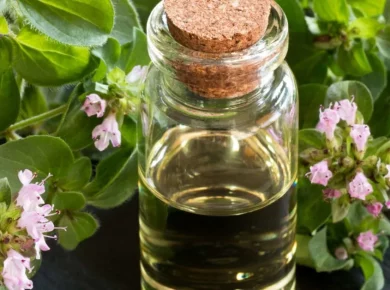Olives are a type of fruit that is commonly used in culinary applications and known for their distinct flavor and texture. They are widely used in Mediterranean cuisine and are also popular in various cuisines around the world. Besides being delicious, olives are also known to offer numerous health benefits. However, like any food, they may also have some side effects. Let’s explore the 11 health benefits and potential side effects of olives.
Health Benefits of Olives:
Rich in healthy fats:
Olives are a good source of monounsaturated fats, which are considered healthy fats. These fats have been shown to help improve heart health by reducing LDL (low-density lipoprotein) cholesterol levels, also known as “bad” cholesterol, and increasing HDL (high-density lipoprotein) cholesterol levels, also known as “good” cholesterol.
Antioxidant properties:
Olives contain powerful antioxidants, such as vitamin E and polyphenols, which help neutralize harmful free radicals in the body. This can help reduce inflammation and oxidative stress, which are linked to various chronic diseases, including heart disease, cancer, and neurodegenerative diseases.
Good source of vitamins and minerals:
Olives are a good source of important vitamins and minerals, including vitamin E, vitamin A, iron, and calcium, which are essential for maintaining overall health and well-being.
Anti-inflammatory properties:
Olives have anti-inflammatory properties, which can help reduce inflammation in the body. Chronic inflammation has been linked to various health conditions, including heart disease, diabetes, and arthritis.
Supports digestive health:
Olives are a good source of dietary fiber, which is important for maintaining healthy digestion. Fiber helps promote regular bowel movements and can improve gut health.
May help prevent cancer:
The antioxidants found in olives, such as polyphenols, have been shown to have anti-cancer properties. They can help protect cells from damage and inhibit the growth of cancer cells.
May improve brain health:
Olives are rich in monounsaturated fats and antioxidants, which are beneficial for brain health. They may help improve cognitive function and protect against age-related cognitive decline.
Also Read: Wellhealthorganic.com:alcohol-consumption-good-for-heart-health-new-study-says-no
Promotes skin health:
The vitamin E found in olives is known to be beneficial for skin health. It helps moisturize the skin, reduces oxidative stress, and may help prevent premature aging.
Supports weight loss:
Olives are relatively low in calories and high in healthy fats, which can help keep you feeling fuller for longer, reduce cravings, and support weight loss efforts when consumed in moderation as part of a healthy diet.
May help lower blood pressure:
Olives have been shown to have blood pressure-lowering effects due to their high monounsaturated fat content. This can help reduce the risk of developing high blood pressure, a risk factor for heart disease.
May support bone health:
Olives are a good source of calcium, which is important for strong bones and teeth. Regular consumption of olives may help support bone health, especially in older adults.
Side Effects of Olives:
High sodium content: Olives can be high in sodium, which can contribute to high blood pressure in individuals who are sensitive to sodium. It’s important to consume olives in moderation, especially if you have high blood pressure or other health conditions that require a low-sodium diet.
Allergic reactions: Some individuals may be allergic to olives or develop an allergic reaction to olives or olive products. Allergic reactions may include symptoms such as itching, rash, swelling, or difficulty breathing. If you experience any of these symptoms after consuming olives, seek medical attention immediately.
High-calorie content: While olives are rich in healthy fats, they are also relatively high in calories. Over
Conclusion
In conclusion, olives are a delicious and nutritious food that offer numerous health benefits, including being a good source of healthy fats, antioxidants, vitamins, and minerals. They have been shown to support heart health, reduce inflammation, promote digestive health, potentially prevent cancer, improve brain health, support skin health, aid in weight loss, potentially lower blood pressure, and support bone health.
Also Read: rajkotupdates.news : drinking lemon is as beneficial
However, it’s important to consume olives in moderation and be mindful of their high sodium content and relatively high-calorie content. Some individuals may also be allergic to olives, so it’s important to be aware of any potential allergic reactions. As with any dietary changes, it’s recommended to consult with a healthcare professional or a registered dietitian to determine the appropriate amount and frequency of olive consumption based on your individual health needs and considerations.
FAQ
Q: What are the health benefits of olives?
A: Olives have several health benefits, including being a good source of healthy fats, antioxidants, vitamins, and minerals; supporting heart health; reducing inflammation; promoting digestive health; potentially preventing cancer; improving brain health; supporting skin health; aiding in weight loss; potentially lowering blood pressure; and supporting bone health.
Q: What are the potential side effects of olives?
A: Some potential side effects of olives include their high sodium content, which can contribute to high blood pressure in sensitive individuals; potential allergic reactions; and their relatively high-calorie content, which may need to be considered in a balanced diet.
Q: Are olives good for heart health?
A: Yes, olives are considered good for heart health due to their monounsaturated fat content, which can help improve cholesterol levels and reduce the risk of heart disease.
Q: Can olives help with weight loss?
A: Olives can be a part of a weight loss diet as they are relatively low in calories and high in healthy fats, which can help keep you feeling fuller for longer and reduce cravings. However, it’s important to consume them in moderation as part of a balanced diet.
Q: Can olives cause allergies?
A: Yes, some individuals may be allergic to olives or develop an allergic reaction to olives or olive products. Allergic reactions may include symptoms such as itching, rash, swelling, or difficulty breathing. If you experience any of these symptoms after consuming olives, seek medical attention immediately.
Q: Can olives be harmful due to their sodium content?
A: Olives can be high in sodium, which can contribute to high blood pressure in individuals who are sensitive to sodium. It’s important to consume olives in moderation, especially if you have high blood pressure or other health conditions that require a low-sodium diet.















